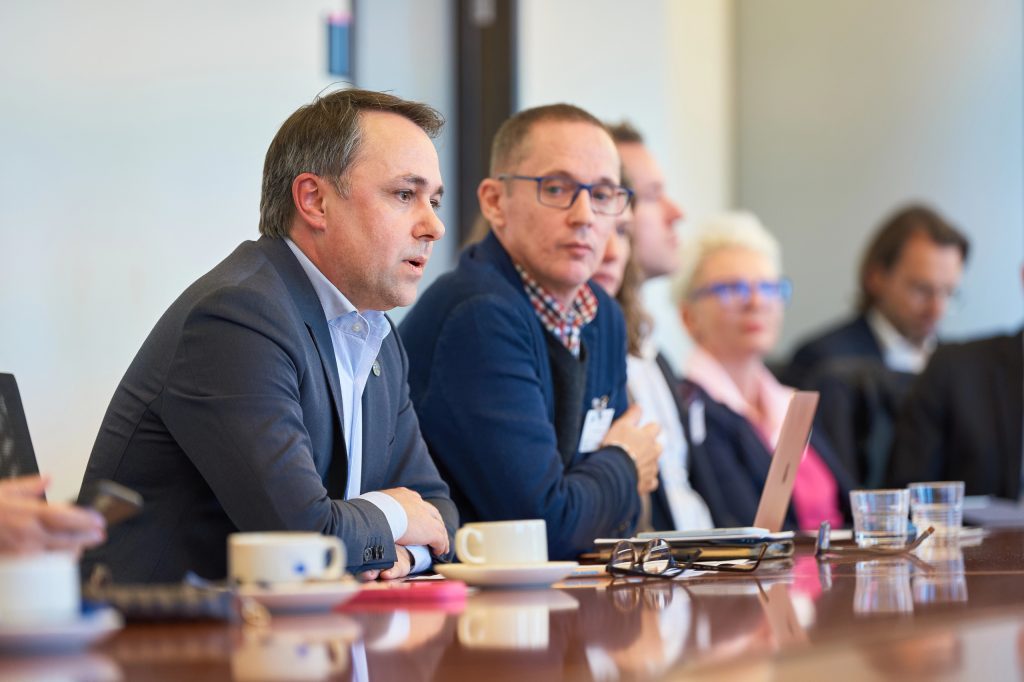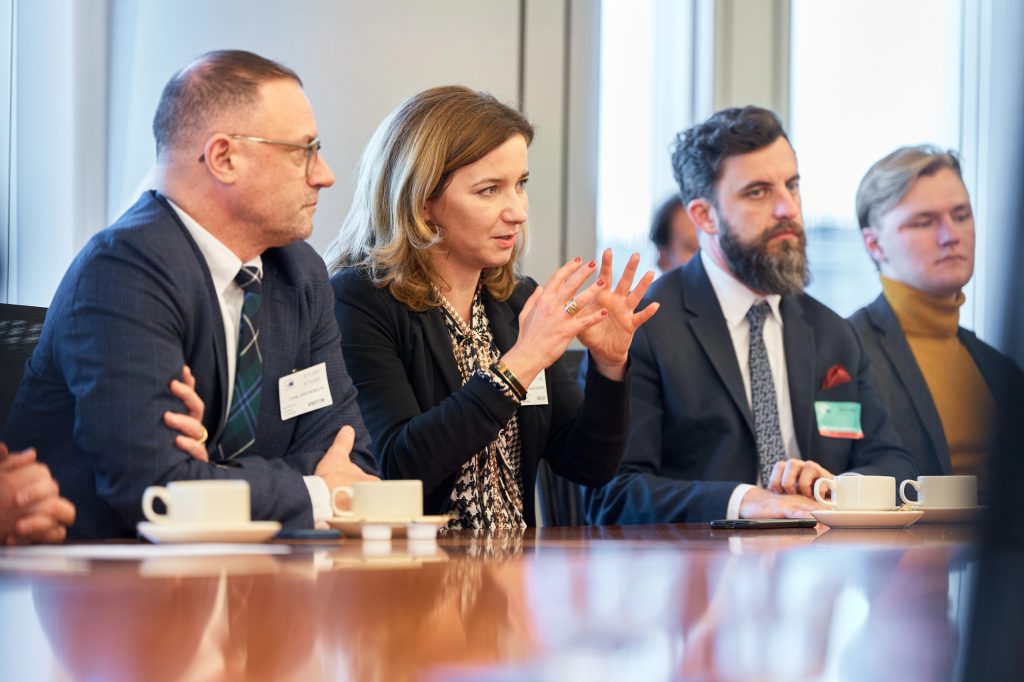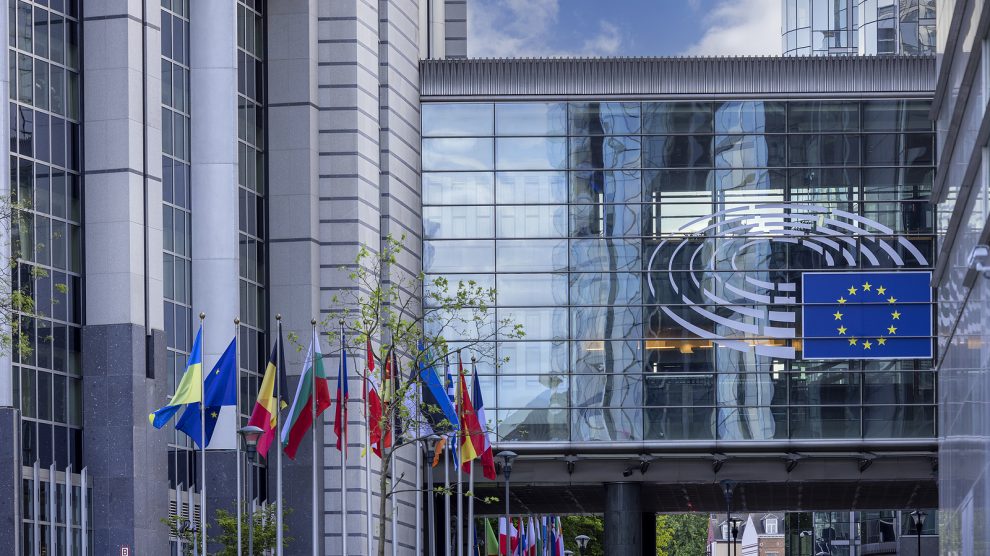Across the world disruptive technologies are democratising access to services, empowering individuals, and transforming businesses. What more do we need to do to embrace this change, encourage innovation, and harness the power of disruptive technologies to create a better future?
The term ‘disruptive’ often carries a negative connotation, evoking images of chaos and destruction. As such, disruptive technologies are often seen as a threat to established industries, traditional jobs, and our way of life.
But what if we were to shift our perspective? What if we viewed these disruptive technologies not as threats, but as opportunities? After all, many of the things we take for granted, things which for our generations have always been with us—such as the x-ray, the MRI, radio, television, even cinema—were all once considered disruptive technologies.
It’s easy to forget, partly because of the brouhaha over artificial intelligence (AI) in particular, that disruption is usually for the common good.
Nevertheless, one of the challenges that disruptors currently face is this problem of perception, and about how we can reassure people and businesses that disruptive technologies can work in their favour, rather than against them.
On November 7, a discussion at the European Parliament, part of the Future of Emerging Europe Summit and Awards 2023 programme, looked at these key issues.
The discussion was hosted by Alin Mituța, an MEP from Romania and a member of REPER, a party affiliated with Renew Europe. Mituța is focused on several digital issues, serving as a parliamentary rapporteur for Digital Identity, Gigabit Infrastructure, and the Data Act.
“Generally speaking, the whole of Europe is lagging behind in terms of technology,” said Mituța. “If we look at the numbers, the EU’s share of global revenue in the ICT market has fallen from 21 per cent in 2013 to only 11 per cent in 2022. This is worrying. In addition, the EU relies on foreign countries for up to 80 per cent of digital products. This is also worrying.”
According to Mituța, Europe needs to reassert its technological leadership.
“Europe is the world’s largest single market, it’s our greatest asset,” he said. “We need to address our strategic dependencies—especially on critical raw materials, semiconductors, IT cloud software and cybersecurity.”

According to MEP Alin Mituța (left), Europe’s greatest asset is its single market
Mituța believes that the EU’s Recovery and Resilience Fund, currently being rolled out to member states, is a chance for the bloc to begin the process of catching up. “Some 20 per cent of these funds are earmarked for digital transformation. That means that over 140 billion euros until the end of 2026.”
All the funding in the world, however, will not be enough without the right, supportive legislation. Here, the EU is current making great progress. “We have already passed the Digital Services Act, the Digital Markets Act and the Chips Act,” he said. The latter has already paid dividends, with several semiconductor manufacturers announcing plans to open manufacturing plants across the EU, including Poland.
The day after the discussion, Parliament also approved the European Data Act. The act aims to boost the EU’s data economy by unlocking industrial data, optimising its accessibility and use, and fostering a competitive and reliable European cloud market.
“To build the Internet of Things (IoT), to make the best use of AI, data is our most important raw material. The Data Act allows us access a huge of amount of data that we don’t use right now,” said Mituța, who added that the EU is also working on an AI Act, which will be the world’s first comprehensive AI law.
As part of its digital strategy, the EU wants to regulate AI to ensure better conditions for the development and use of this innovative technology. AI can create many benefits, such as better healthcare; safer and cleaner transport; more efficient manufacturing; and cheaper and more sustainable energy. But with so much data available and accessible, how can ordinary individuals rest assured that it will not be misused?
Using—and protecting—data
Tomislav Sokol is an MEP from Croatia and a member of the European People’s party. A parliamentary rapporteur for Public Health and a parliamentary committee member for the Internal Market and Consumer Protection, he is perfectly qualified to address these concerns.
“The health sector has the largest amount of data that is not really being used to the full extent,” he said. “There is no interoperability between different member states on the use of health data, and this is this is a big problem.”
“When it comes to primary data, the goal is to create a common European format of digitalised medical records that can be available to any medic anywhere in the bloc. It will end duplication of tests and analysis and make primary healthcare available faster. Of course, it’s very important that we as patients keep control of this data, but in terms of political negotiations there are no big differences. We just need to get healthcare systems on board.”
When it comes to secondary data—the kind used by governments, universities and research institutes for the purpose of policymaking, creating new medicines or new technology—Sokol says that things are more controversial.
“The problem with this kind of data is how to reconcile access with GDPR and data concerns,” he said, adding that, “This kind of data will be anonymised, which means that it cannot be used to identify individual patients. This data can be used for research, for innovation, but not to identify individual patients. Furthermore, this data will be able accessible only in a secure, controlled environment.”
Regardless of such assurances, Sokol believes that patients should still have the right to ensure that their data is not made available. “Some political groups want an opt in, others and opt out,” he said, adding that he favours opt out, “Otherwise, we may not have enough representative data. We need to find a balance between the protection of data, but also the need to use this data to become more competitive on the global level, because data is now one of the most valuable resources in all areas, especially in healthcare.”
Márton Domokos is Senior Counsel, CMS Hungary and Head of CEE Data Protection. He believes that as more and more data becomes available, cybersecurity must evolve, and that people should be aware of new threats.
“And I think that for a lot of stakeholders, the responsibility is with both the private and the public sector to raise awareness about these trends, communicating the threats to individuals. It’s a joint responsibility—the public sector should build on the experience of the private sector,” he said.
The right regulation
Agnieszka Gajewska is Global Government and Public Services Leader, CEE Clients and Markets Leader at PwC. For her, the right regulation is crucial if we are to harness new technology and benefit from it.
“At PwC we have carried out a great deal of research among employees across the globe and there is fear that technology will severely disrupt their jobs by 2030,” she said. “Our task, collectively, is to make sure that we are introducing the right regulations and the right support to make sure that this disruption will bring about societal advancement, rather than leaving people behind.”
“My message is: let’s put in place the right legislation, and let’s make sure that we all have access to digital infrastructure.”

Agnieszka Gajewska, PwC (centre)
Gajewska also believes that disruptive technology is an opportunity for emerging Europe. “We have the talent,” she said, adding that the region also has experience of managing disruption, given the huge changes that took place three decades ago when it ditched communism and adopted market economics. “We have done very well since then, and we can do the same again.”
It’s often tempting to dwell too much on AI, as there is clearly a lot more to disruptive technology than AI—but it is probably the most talked about disruptive technology of our times.
For Michelle Simmons, General Manager Central Europe at Microsoft, AI comes with responsibility.
“And that’s not just for companies like Microsoft that are building AI technology, but it’s for any company that’s leveraging artificial intelligence or building on our platform—or other platforms incorporating AI—into their own solutions,” she said at the European Parliament event.
“AI can help free us from what we might call the drudgery of work. AI can help us to disrupt work in a positive way, to become more creative and to focus on the work that we want to focus on. But for anyone making decisions about how they’re going to build AI into their solutions or their business models, they need to think about how to do that responsibly.”
Energy is another area undergoing a period of disruption, as countries scramble to move away from fossil fuels to find alternative sources. Bodo Mayer, General Manager Hydro for Europe, the Middle East, and Africa at GE Vernova, says that disruptive technology—especially AI—is now a “must have”.
“Our competitors are not sleeping,” he said. “AI is a mandatory technology we need to develop industrial applications. [in the energy sector] we need to be able to simulate things better, to make better calculations, and this is where AI can really help us.”
Opportunities for emerging Europe
On the question of the opportunities for emerging Europe, Microsoft’s Michelle Simmons believes that the region needs to build on its success so far, such as the unicorns which have been coming out of Estonia.
“It’s not just about what technology is being developed, it’s also about how governments encourage innovation,” she said. “And instead of always competing, it may be a good idea to take a step back and say, How can we do things differently? How can we create our own unique space? How do we make the most of the skill set that exists in this region, and how do we tap into it, to build more start-ups and drive more innovation.”
Agnieszka Gajewska agrees that more emphasis should be placed on improving the region’s ecosystem.
“We need to create a better ecosystem and this is something that can’t be done by the European Union or the European Parliament alone,” she said, adding that attracting investment is key. “We have some countries in the region which are adventurous—such as the Baltic states—and I think that the more we move in that direction, with governments themselves saying that they want to invite private investment, VC investment, the better it will be.”
“I’m optimistic: I think this current wave of disruption can be a spark for a new wave of investment in our region, given our track record, given our entrepreneurship and given our talent. With better regulation and more financing, we can get there.”
Unlike many news and information platforms, Emerging Europe is free to read, and always will be. There is no paywall here. We are independent, not affiliated with nor representing any political party or business organisation. We want the very best for emerging Europe, nothing more, nothing less. Your support will help us continue to spread the word about this amazing region.
You can contribute here. Thank you.







Add Comment